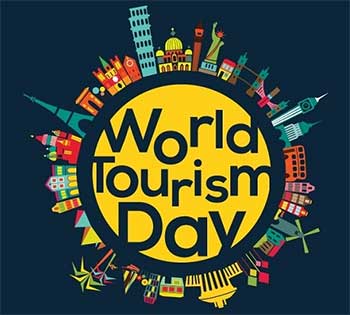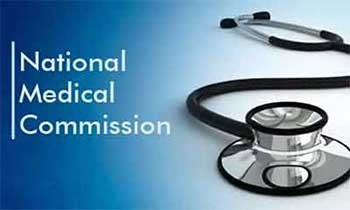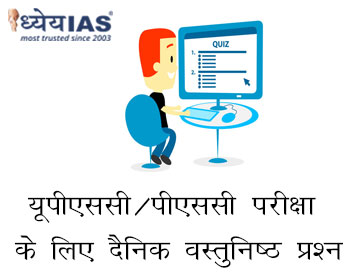Diaspora Bonds
IN NEWS
- Kerala, which has close to 2 million migrant workers in the West Asian region and is among worst hit on account of the Covid-19 -linked drop in global remittances, is gearing up to seek regulatory approvals shortly to issue ‘diaspora bonds’.

ABOUT
- While the state government, in collaboration with The World Bank, has been toying with the idea of issuing these specialised bonds, the pandemic has only added to the urgency to launch the bonds.
- These bonds will tap into the savings of non-resident Keralites, a majority of whom are in the Gulf Cooperation Council (GCC) countries, where their deposits in banks earn near-zero per cent interest.
Objective
- The diaspora bond will, alongside mobilising financial resources for development in Kerala, will also build a long-term bridge to its diasporas abroad, who are a key stakeholder in the state’s development efforts.
Kerala Infrastructure Investment Fund Board (KIIFB)
- Diaspora bonds will be issued by KIIFB.
- They will have to take necessary clearances from RBI.
- KIIFB, or the Kerala Infrastructure Investment Fund Board, is a statutory body under the state government’s Finance Department and has issued a tender inviting a consortium of lead managers for the proposed issue.
- The (Kerala) government this year issued an order designating KIIFB as the nodal agency to issue a diaspora bond.
- There was also a decision to issue the diaspora bond in rupee terms and to market it among non-resident Keralites and non-resident Indians, most of whom are in the Gulf Cooperation Council countries.
India’s Remittance
- Going by Kerala migration surveys and World Bank staff estimates, remittance flows to Kerala in 2018 was estimated at $13 billion and around $14 billion in 2019.
- Kerala and Punjab are two of the largest remittance recipients among Indian states, where a large number of households rely on remittances and a drop in inflows are likely to result in disruptions to their financial lifelines, affecting their ability to consume, afford healthcare, and education.
- India, the world’s top recipient of remittance transfers, took in $83 billion as remittances from workers abroad last year, and is projected to see a 20% drop in remittances this year.
- Kerala, which accounted for over 15% of India’s total inflows, could be among the worst impacted states on account of the drop in global remittance inflows
World Tourism Day (27th September)
IN NEWS
- Ministry of Tourism celebrated World Tourism Day on September 27th 2020 through virtual platform.

ABOUT
- The theme for World Tourism Day 2020 is “Tourism and Rural Development” as countries across the world depend on the sector to drive recovery.
- This year will celebrate the importance of tourism in providing jobs and opportunity, mostly for women and youth, in rural as well as big cities and in preserving cultural and natural heritage all around the world apart from being a leading employer and economic pillar.
- During the event, SAATHI Application was also launched.
- SAATHI is an initiative of the Ministry of Tourism with Quality Council of India to assist the hospitality industry to continue to operate safely and thereby install confidence among the Staff, employees and the guests about the safety of the hotel/unit.
- A film named ‘Pathik’ was also launched, an initiative on Incredible India Tourist Facilitators Certification Programme (IITFC) and an ICPB MICE Promotional film.
- IITFC, a Pan-India online learning program that is open to all, and can be undertaken from anywhere in the country. The Programme aims at creating a pool of trained professionals for facilitating the visit of tourists at destinations across the country.
- The objective of the ICPB Mice Promotional film is to communicate a positive message for welcoming events to India when competing destinations are already actively marketing their products. The tone of joy and confidence in getting back to business, warm hospitality, safety protocols in place and assurance of a delightful experience is the core message of the film.
Date and history
- Ever since 1980, World Tourism Day is celebrated annually across the world on September 27.
- It was on this day in 1970 when the Statutes of the UNWTO were adopted which are considered a milestone in global tourism.
- UNWTO celebrated the first World Tourism Day as an international observance on September 27, 1980.
Significance
- The purpose of this day is to raise awareness on the important of tourism in affecting the social, cultural, political and economic values of international community.
- In current times, it is important to raise awareness about the tourism sector given that 90% of World Heritages Sites closed as a result of the pandemic and young people in rural communities are three times more likely to be unemployed.
- However, domestic tourism is expected to return before international tourism, as per UNWTO foresight. This could benefit rural communities if managed well.
Importance of Tourism
- Through its social, cultural, political and economic value, the tourism sector contributes to the sustainable development goals.
- It can also help advance global cooperation beyond the pandemic in current times by bringing people together and promoting solidarity and trust.
- About 100 to 120 million direct tourism jobs are at risk as per the data from the UN World Tourism Organization (UNWTO).
- A more sustainable and inclusive tourism sector in crucial given the loss of 1.5 to 2.8 per cent of global GDP has been forecasted by the UN Conference on Trade and Development (UNCTAD).
National Medical Commission (NMC)
IN NEWS
- Historic reform in the field of medical education came in effect by the Union Government with the constitution of the National Medical Commission (NMC), along with four Autonomous Boards.

About
- Now the decades old institution of the Medical Council of India (MCI) stands abolished.
- Along with NMC, the four Autonomous Boards of UG and PG Medical Education Boards, Medical Assessment and Rating Board, and Ethics and Medical Registration Board have also been constituted to help the NMC in day to day functioning.
- This historic reform will steer medical education towards a transparent, qualitative and accountable system.
- The basic change that has happened is that the Regulator is now 'selected' on merits, as opposed to an 'elected' Regulator.
- The Notifications in this regard were issued on the 24th September, 2020.
National Medical Commission
- The National Medical Commission Act, 2019 was passed by the Parliament in August, 2019.
- Dr. Suresh Chandra Sharma, former head of ENT, (AIIMS), Delhi, has been appointed as its chairman for three years.
- Besides the Chairperson, NMC will have 10 ex-officio members that include Presidents of the four Autonomous Boards.
- In addition, NMC will have 10 nominees from Vice Chancellors of Health Universities from States/UTs, 9 nominees from State Medical Councils, and three expert members from diverse professions.
- The NMC will carry forward the reforms initiated by the Board of Governors under Dr V K Paul.
Key Function
- The key functions of the NMC will be further streamlining regulations, rating of institutions, HR assessment, focus on research.
- Besides they will work on modalities of the common final year exam after MBBS (NEXT- National Exit Test) to serve for both registration and PG entrance; prepare guidelines for fee regulation by private medical colleges; and developing standards for Community Health Providers to serve in primary healthcare with limited practicing licence.
Indian Medical Council
- Indian Medical Council Act, 1956 (102 of 1956) is hereby repealed with effect from September 25 amid NMC Act coming into effect.
- The Board of Governors appointed under section 3A of the Indian Medical Council Act, 1956 (102 of 1956) in supersession of the MCI constituted under sub-section (1) of section 3 of the said Act shall stand dissolved.







